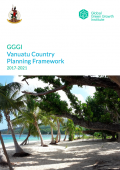
This Country Planning Framework (CPF) sets the strategic direction for the Global Green Growth Institute (GGGI) in Vanuatu over the period 2017-2021.
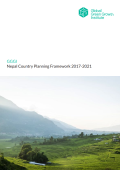
This Country Planning Framework (CPF) outlines the five-year program and joint commitment that the Global Green Growth Institute (GGGI) and the Government of Nepal (GoN) have pledged to achieve in the period 2017-2021.
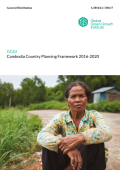
This Country Planning Framework (CPF) is a high-level document guiding the Global Green Growth Institute's (GGGI) joint program with the Royal Government of Cambodia (RGC).

This collection aims to provide a reference for policy makers and practitioners working to scale up bioenergy in rural areas of sub-Saharan Africa. Energy, agriculture, forestry, environment, finance and business experts all seek for solutions to provide energy and also enhance food security, social welfare and environmental sustainability.
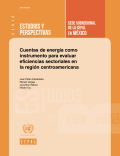
This case study presents a discussion on the possibilities of implementing and using energy accounts in developing countries as a complement to traditional energy balances and statistics, which is particularly applicable in Central American countries.

The Role of Sustainability-oriented Social Enterprises in Boosting Green Livelihoods and Business Opportunities in Rural Contexts reviews the cases of capacity building and knowledge improvement of rural livelihood in rural communities related to sustainable and low-carbon solutions. The reviewed sub-cases show that implementation of local integrated systems of solutions addressing energy, water, shelter and other livelihood needs at community level require paying major attention to enabling social processes and organisational capacities rather than only focusing on a given technological innovation.

This case study Fly Ash Bricks: Brick production using fly-ash from thermal power plants in India shows how a green business initiative can be a win-win for power plant operators, the environment and local communities.

This case study Africa Illovo Sugar: Developing climate resilience through collaboration shows how businesses can work together to reduce social, environmental and economic impacts of their production.

This case study Indonesia: su-re.coffee - Synergizing climate change mitigation and adaptation through supporting farmers in utilizing clean bioenergy and climate-smart agriculture shows an approach to addressing the exacerbation of high energy consumption on rural households and farmer reliance on rice paddies.
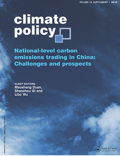
Utilising the United Republic of Tanzania as a case study, this article examines how climate change is addressed in policy, how it is being mainstreamed into water, energy and agriculture sector policies and the extent to which cross-sectoral linkages enable coordinated action.
